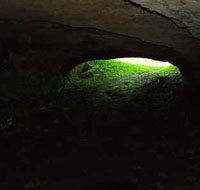When the seeker manages to remain concentrated for a sufficiently long period, it will be possible for him to recognize at least the premise of a screen of luminous consciousness which is his true being. He will then realize that it is possible for him to exist without his body, which will be of invaluable assistance in order to face the decisive moment when he will have to leave his bodily envelope.
Inner Awakening and Practice of Nada Yoga – Chapter 9
At the beginning of his mysterious spiritual adventure, the seeker may not realize that this inner act of “self-surrender,” which must, little by little, become for him a permanent and natural way of being, in reality constitutes an apprenticeship and an important preparation for the hour of his death, the hour of the dissolution of his corporeal form—a phenomenon that no living creature (who, for a usually unfathomable reason, has taken on a visible body), no celestial star, not even the Universe can escape.
Knowing how to surrender himself inwardly will be an inestimable aid for the aspirant when the moment of his physical death comes and he is carried away by an invisible force, in the face of which he will find himself totally helpless. At that fatal moment, it will be so precious to him to be already familiar with this subtle inner approach of “self-surrender.”
All his spiritual work must, in fact, become a preparation for that implacable hour, that crucial instant when he will be initiated into something whose immensity he cannot usually conceive—unless he has already had, during his meditation, a glimpse of that enigmatic state, into which he will be reabsorbed after his death; he will then be more confident and be able to surrender himself inwardly without fear when the moment comes for him.
Awakening : a Matter of Life or Death – Chapter 3
From the Depths of the Mists
8 – Hakkor the Penitent – (comment on the novel)
One should recall that the primary goal of spiritual practice must be to recognize in meditation another state of being and consciousness which is independent from the tangible world and which can be found after death. One will then realize that it is possible to exist without the support of a body and one will no longer have the same apprehension about losing one’s earthly envelope.
9 – The Weight of a Word (comment on the novel)
The human being has become so accustomed to attaching credit only to the senses—to what he can touch, feel, see, hear and taste—that the very idea of Impersonal, formless, invisible and beyond the tangible shocks and frightens him.



